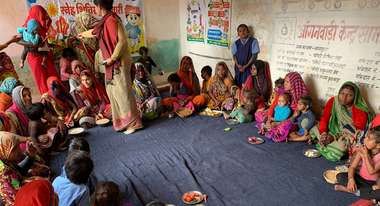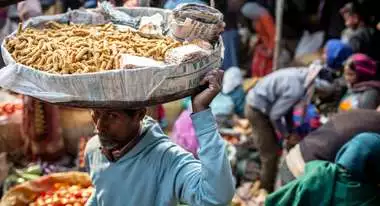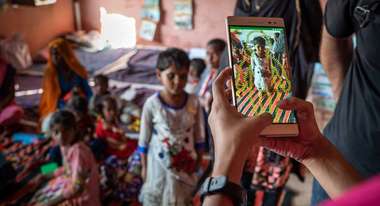Small farms are the centre of a sustainable food system
Welthungerhilfe is supporting smallholder farmers to achieve Zero Hunger in India
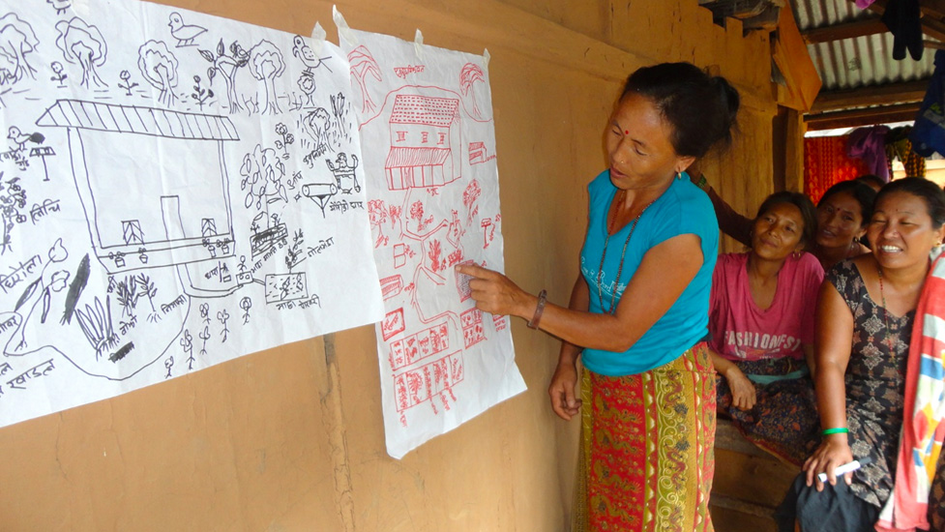
COVID-19 has opened a window of opportunity for re-launching efforts in promoting sustainable food systems to achieve Zero Hunger. Smallholder farming is often seen as a problem. And indeed, most of the rural poor are small-scale family food producers who depend on agriculture and aquaculture for their food and income but face many difficulties accessing productive resources, opportunities and markets.
The central role of smallholder farms
According to the FAO there are more than 600 million farms worldwide and more than 90% of farms are run by an individual or a family and rely primarily on family labour. Estimates suggest that that they occupy around 70 to 80% of farmland and produce more than 80% of the world’s food in value terms. They play a central role for food security worldwide and should be at the centre of the food system.
Welthungerhilfe works for a people-centered food system that respects human rights including social, economic and cultural rights like the right to food, that is based on participation of farmers, producers and consumers on eye-level with decision-makers and that is ecologically sustainable. Solutions are not to be found for farmers but developed together with them. These are some best practice examples from Welthungerhilfe’s work in India.
Support required for farmers
Research has shown that, given the right support, small farms are more productive than large farms. Small, sustainable farms can help in the fight against climate change and provide important ecosystem services; they are a reservoir for biodiversity, and are less vulnerable to pests, diseases and environmental shocks.
Pushing for larger structures without the right policies and support in place has produced risks like indebtedness, urban-rural and producer-consumer disconnect, decrease in soil fertility and fertiliser efficiency, water contamination, loss of traditional knowledge, water contamination, diminishing ground water, increased pest infestations, biodiversity loss, malnutrition and food-related disorders, and ineffective markets that are preventing access to nutritious food for many people.
Sustainable Integrated Farming Systems
Welthungerhilfe India started assisting smallholders in re-designing their farming systems, from monocropping to sustainable integrated farming systems. Welthungerhilfe developed together with a network of partners from India a holistic approach and facilitation guide for smallholder farmers that is called Sustainable Integrated Farming Systems (SIFS).
It does not only view the farm as production system for agricultural products, but rather as an entity that is embedded into a natural, social and cultural environment. Not only cereal crops but varieties of other farm-based and forest-based plants, trees and animals are combined. It has shown some very promising results with regards to biodiversity, ecological conservation, dietary intake, farm surplus and income.
Farmers do not get ready-made solutions, but develop them through participatory learning and action cycles, through which they assess their resources and constraints, and create innovative and technologically appropriate solutions. Farmer groups are involved in the process. Comprehensive “Farm Development Plans” are developed through systematic capacity building – not only addressing food, nutrition and income security but also incorporating disaster risk reduction, biodiversity conservation and energy security.
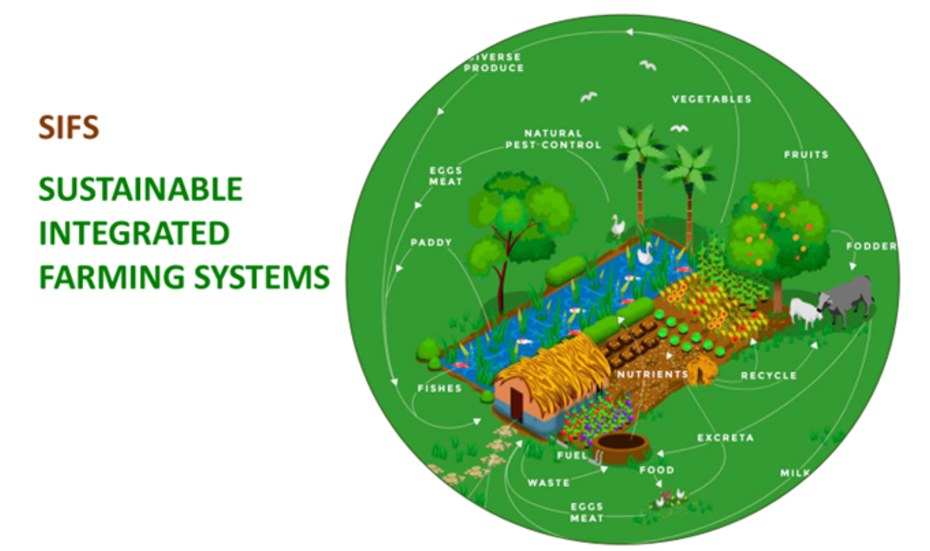
Welthungerhilfe’s LANN approach
Improving agriculture production is not enough. Welthungerhilfe developed the LANN approach, “Linking Agriculture and Natural resource management towards Nutrition security”. LANN is not only addressing agriculture, but also natural resources management, nutrition education, income generation as well as water, sanitation and hygiene (WASH).
Welthungerhilfe developed and demonstrated a multisectoral, community-based and evidence-based implementation model which addresses the interlinkages. The implementation model follows a right-based approach and is today based on five standardised, scalable and cost-effective “Best Practices”: nutrition-sensitive agriculture, nutrition education, nutrition camps, nutrition-sensitive microplanning and institution building.
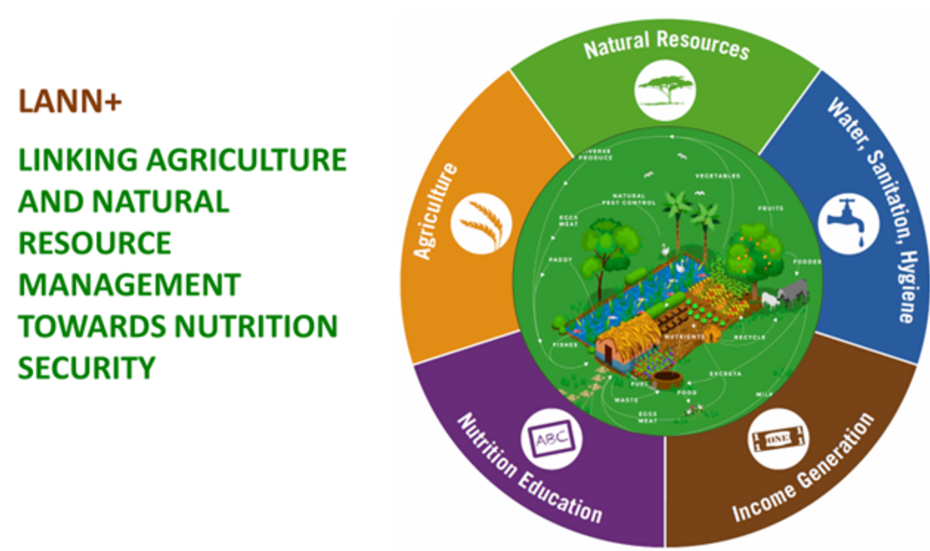
Green Colleges and rural ecopreneurs
Welthungerhilfe capacitates and supports rural entrepreneurs and rural enterprises, mainly through skills building, farmer field schools, and a business accelerator program called “Fast Track” for high potential entrepreneurs.
To improve rural extension for sustainable agriculture and business, Welthungerhilfe supported NGO partners to establish Green Colleges. These Green Colleges are now training thousands of rural youths in different businesses, combining traditional knowledge with scientific techniques to help them become “ecopreneurs” and to enable them to better access to technology, finances and markets. Green Colleges train on topics such as sustainable farming, animal husbandry and veterinary para-professionals, integrated fishery, sustainable harvesting and processing of forest produce, agro-food processing and solar lighting.
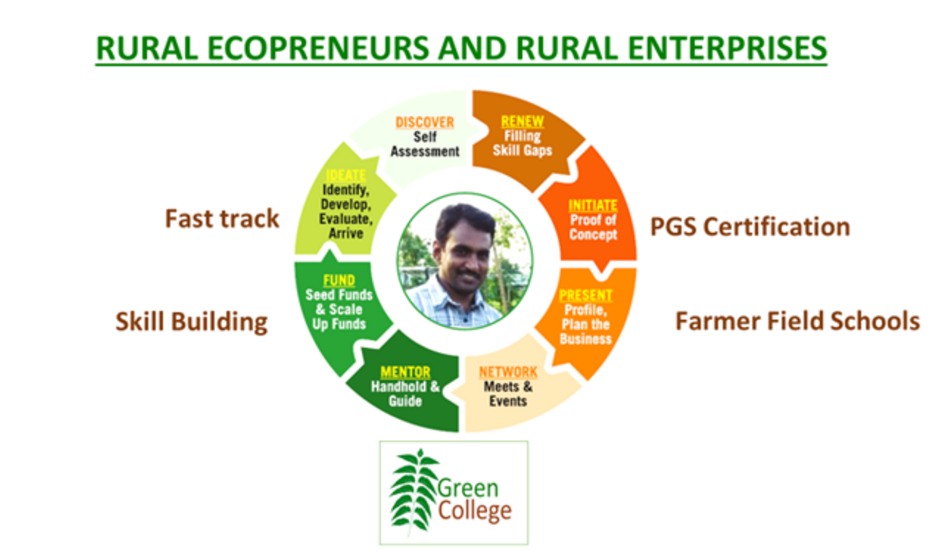
The Participatory Guarantee System
Welthungerhilfe and its partners are a driving force in promoting Participatory Guarantee Systems (PGS). PGS is an alternative for organic certification in local and domestic markets. It aims to provide a credible organic guarantee to consumers seeking organic produce through direct participation of farmers, consumers and other stakeholders in the organic guarantee process. It is cost effective and accessible to all smallholder farmers. It enhances producer level traceability and provides an ecological guarantee to consumers based on veritable trust, while avoiding the entry barriers of third-party certification.
PGS is now recognised by the Indian Government. In addition, the private limited company Skill Green Global was established as a social business, to the Green Colleges and other rural skill building institutions in designing courses, offering mentoring support, certifying trainers, business planning, etc.
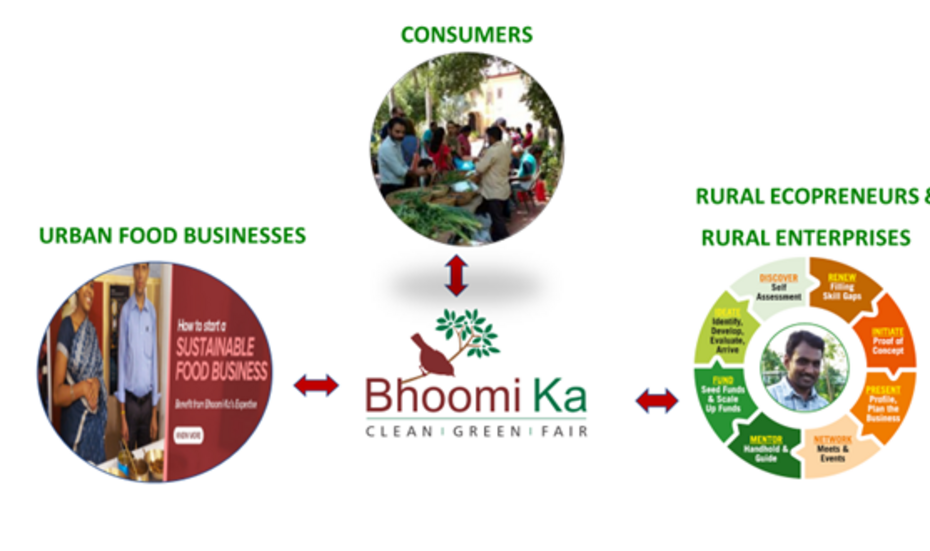
BhoomiKa, consumers and urban food entrepreneurs
Welthungerhilfe also addresses consumers, especially urban and peri-urban consumers, as a pull factor to create and scale business models for clean, green and fair products benefiting smallholder farmers. Activities like food festivals, fairs, cooking demonstrations, farm visits and trainings on urban gardening have helped create demand as well as contributed to the income of farmers and small businesses.
BhoomiKa was established by Welthungerhilfe with the aim of helping “ecopreneurs” of new sustainable businesses. It brings together smallholder farmers, certification bodies, entrepreneurs and consumers to one platform. It follows an integrated approach by promoting reliable consumer information and awareness, supporting with business development and consumer outreach, supporting smallholder farmers to access markets and creating an enabling policy environment by engaging with policy makers.
Feeding the planet sustainably in the future is being described as one of the greatest challenges in human history. Demand will be 60% higher than it is today, but climate change, urbanisation, and soil degradation will have shrunk the availability of arable land and clean water. In the competition for natural resources the danger is high that the weakest will lose if they do not receive political support to create decentralised, sustainable and diversified food systems that provide enough and healthy food for everyone and thus realise the human right to food.





